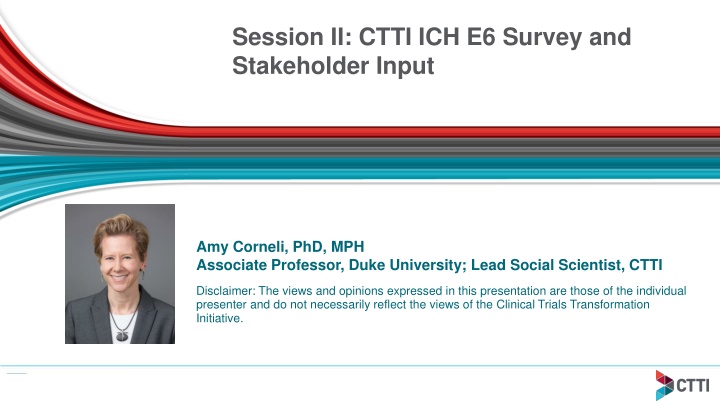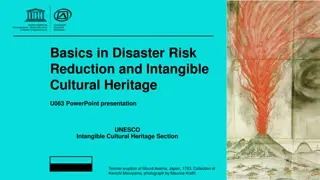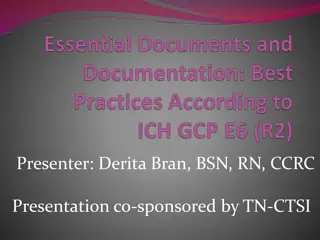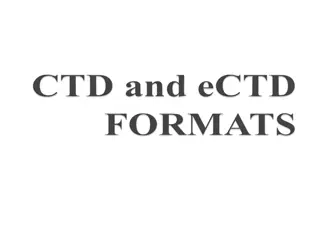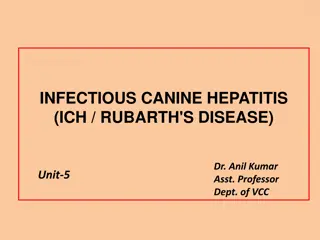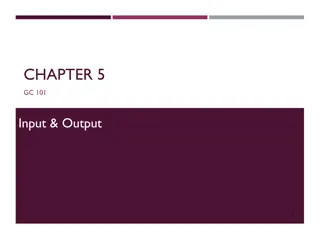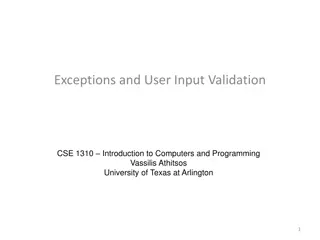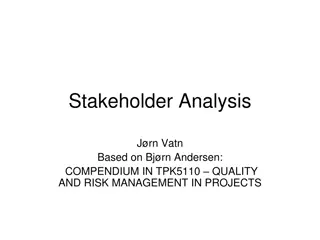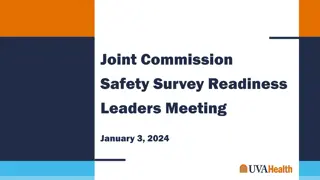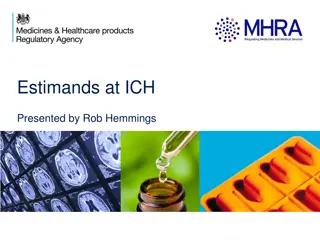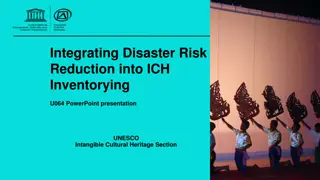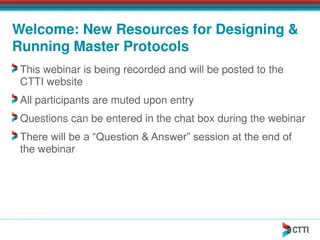Insights from CTTI ICH E6 Survey and Stakeholder Input
Explore key findings from the Clinical Trials Transformation Initiative (CTTI) ICH E6 Survey, identifying areas in need of updating and stakeholder perspectives. Survey participants, from various regions, emphasized updating top ICH E6 principles like quality assurance systems and informed consent. Sections requiring the most attention for updates were Investigator and Sponsor sections.
Download Presentation

Please find below an Image/Link to download the presentation.
The content on the website is provided AS IS for your information and personal use only. It may not be sold, licensed, or shared on other websites without obtaining consent from the author.If you encounter any issues during the download, it is possible that the publisher has removed the file from their server.
You are allowed to download the files provided on this website for personal or commercial use, subject to the condition that they are used lawfully. All files are the property of their respective owners.
The content on the website is provided AS IS for your information and personal use only. It may not be sold, licensed, or shared on other websites without obtaining consent from the author.
E N D
Presentation Transcript
Session II: CTTI ICH E6 Survey and Stakeholder Input Amy Corneli, PhD, MPH Associate Professor, Duke University; Lead Social Scientist, CTTI Disclaimer: The views and opinions expressed in this presentation are those of the individual presenter and do not necessarily reflect the views of the Clinical Trials Transformation Initiative.
Multi-stakeholder, public-private partnership co-founded by Duke University & FDA Participation of 500+ more orgs and + 80 member organizations MISSION: To develop and drive adoption of practices that will increase the quality and efficiency of clinical trials
Evidence Gathering Activities Online survey to identify: areas of ICH E6 that are and are not in need of updating a diverse group of stakeholders for in-depth interviews https://www.ctti-clinicaltrials.org/sites/www.ctti- clinicaltrials.org/files/survey_final.pdf Qualitative, in-depth telephone interviews Most and least helpful aspects/sections and why What stakeholders hope the update will achieve Suggestions for improving guidance https://www.ctti-clinicaltrials.org/sites/www.ctti- clinicaltrials.org/files/idi-report_final_17mar2020.pdf Open-comment platform https://www.ctti-clinicaltrials.org/sites/www.ctti- clinicaltrials.org/files/open-comment_final.pdf
Survey Participants (n=327) reside in 39 countries Europe and Central Asia North America 60% 30%
Survey Participants conduct research in 153 countries 70% in Europe & Central Asia 52% in North America 30% in East Asia and Pacific 18% in Latin American and Caribbean 15% in sub-Saharan Africa 14% in South Asia 13% in Middle East and North Africa
Top ICH E6 GCP principles needing updating (25%-29%) Implementing systems that assure quality 2.13 Medical care by qualified physicians/dentists 2.7 Confidentiality and privacy 2.11 Informed consent 2.9 Information documentation and storage 2.10
Sections and topic updates Section needing the mostupdating: Section 4: Investigator Section 5: Sponsor Section needing the leastupdating: Section 7: Investigator Brochure Topic most frequently mentioned as needing updating: 5.18 Monitoring (45%)
Qualitative Interviews Participants 23 stakeholders Reside in 10 countries, primarily in Europe (57%) and North America (30%) Conduct research in 124 countries 91% in Europe and Central Asia 78% in North America 74% in East Asia and Pacific 57% in Latin American and Caribbean 57% in sub-Saharan Africa 35% in South Asia 39% in Middle East and North Africa
Helpful Overall Globally agreed-upon guidance Provides research framework for countries with limited research guidelines, or where variation in regulations exists between countries Provides process for establishing a clear evidence base ensures that trial data can support marketing applications
Aspirations Need Flexibility Simplify Make updates Be transparent and inclusive
Need Flexibility Be specific about the types of research for which ICH E6 GCP is a requirement Clarify when guidance is optional Provide a framework for adapting the guidance to other types of research Consider context: because ICH E6 GCP is viewed a global guideline, research in lower and middle-income countries need flexibility (e.g., informed consent, vulnerable populations, orphaned children)
Need Flexibility The introduction of GCP states that the principles of GCP can be, as appropriate, applied to different types of research. So this precise introductory phrase has guided, at least in Europe, authorities and ethical committees applying ICH GCP to all different types of research, which are not even involving drugs, at all. Regulatory, non-profit, Belgium
Simplify Make ICH E6 GCP more user-friendly Simplify GCP refresher training requirements Eliminate duplicative trainings currently required by sponsors Reduce complexity of the guidelines Currently a disincentive for new investigators, for small single-site trials, and for investigator-initiated studies Transition from perception of a checklist and policing tool for audits to the spirit of GCP, which provides guiding principles for research
Make Updates Accommodate changes in research conduct and in technology Multisite and multimodality trials Informed consent (e.g., delayed consent, waiver of consent, opt-out consent) Advances in technology (e.g., paperless trials and remote data collection) New and enhanced study roles and responsibilities (e.g., monitor, sponsor liaison, study coordinator), including patients as stakeholders Clarify terms and concepts (e.g., risk-based approach, quality tolerance limits)
Be Transparent and Inclusive Include a wide variety of stakeholders (e.g., patients, others) in the revision process more operationally feasible guidance Be transparent in the creation of the renovation Process followed Rationale behind decisions Stakeholders who are involved and how selected Process for soliciting feedback How feedback was reviewed
Be Transparent and Inclusive Who is writing [the update]?... Who is it sitting around the table? How they have been selected? There is a big need for transparency about the constituents, their role, the representation. -Academic Center, Study Coordinator, Belgium
Open Comment Opportunity Purpose Allow respondents to suggest line-by-line edits to the current guideline version Participants 36 respondents from North America (n=7), Europe (n=26), and Asia (n=3) who self-reported that they conduct research for which the findings will be used for regulatory purposes. No data analysis was conducted; responses are reported verbatim in the report
